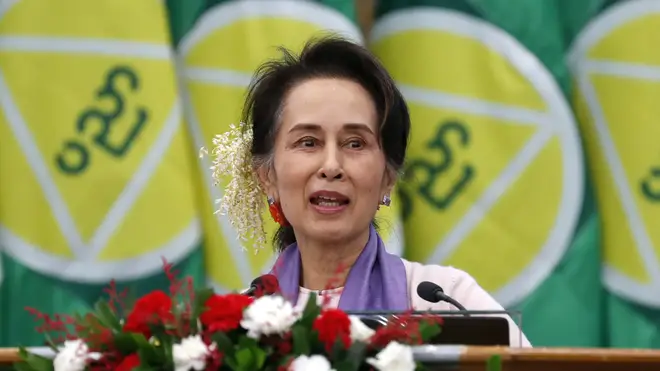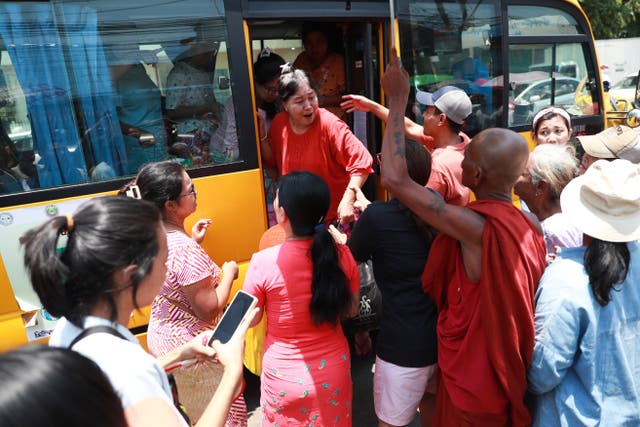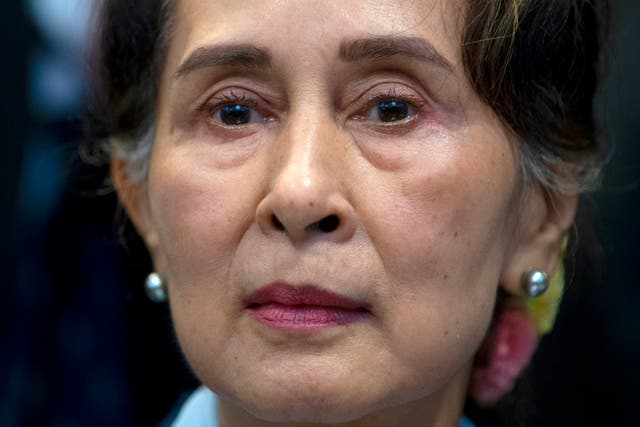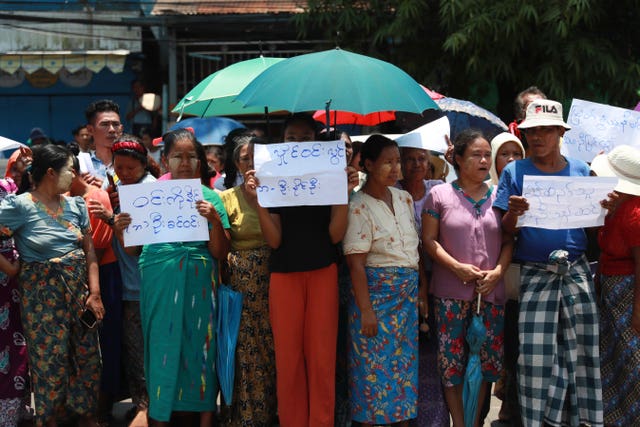
Henry Riley 10pm - 1am
17 April 2024, 09:34

On Wednesday, the military government also granted amnesties for more than 3,000 prisoners to mark this week’s New Year holiday.
Myanmar’s jailed former leader Aung San Suu Kyi has been moved from prison to house arrest as a health measure due to a heatwave, the military government said.
On Wednesday, it also granted amnesties for more than 3,000 prisoners to mark this week’s traditional New Year holiday.
Ms Suu Kyi, 78, and Win Myint, the 72-year-old former president of her ousted government, were among the elderly and infirm prisoners moved from out of prison because of the severe heat, the military’s spokesman, Major General General Zaw Min Tun, told foreign media representatives late on Tuesday.
The move has not yet been publicly announced in Myanmar.

Ms Suu Kyi’s transfer came as the army has been suffering a string of major defeats in its fight against pro-democracy resistance fighters and their allies in ethnic minority guerrilla forces.
The nationwide conflict began after the army ousted the elected government in February 2021, imprisoned Ms Suu Kyi and began suppressing non-violent protests that sought a return to democratic rule.
Ms Suu Kyi has been serving a 27-year prison term on a variety of criminal convictions in a specially-built wing of the main prison in the capital, Naypyitaw, where Myanmar’s meteorological department said temperatures reached 39C (102.2F) on Tuesday afternoon.
Win Myint was serving an eight-year prison sentence in Taungoo in Myanmar’s Bago region.
Ms Suu Kyi’s supporters and independent analysts say the charges were fabricated in an attempt to discredit her and legitimise the military’s seizure of power.
The military had claimed that her National League for Democracy party used widespread electoral fraud to win a landslide victory in the 2020 general election, an allegation independent observers found unconvincing.
According to the Assistance Association for Political Prisoners, an independent group that monitors casualties and arrests, more than 20,351 people arrested on political charges since the 2021 army takeover are still in detention, most of whom have not received criminal convictions.

Ms Suu Kyi’s health has reportedly deteriorated in prison. In September last year, reports emerged that she was suffering from symptoms of low blood pressure, including dizziness and loss of appetite, but had been denied treatment at qualified facilities outside the prison system.
Those reports could not be independently confirmed, but her younger son, Kim Aris, said in interviews that he had heard his mother has been extremely ill and has been suffering from gum problems and is unable to eat.
Mr Aris, who lives in England, urged that Myanmar’s military government be pressured to free his mother and other political prisoners.
News about Ms Suu Kyi is tightly controlled by the military government, and even her lawyers are banned by a gag order from talking to the media about her cases.
Her legal team has faced several hurdles, including being unable to meet her to receive her instructions since they last saw her in person in December 2022.
Whether the latest move is meant to be temporary was not announced.
Spokesman Zaw Min Tun did not say where the released prisoners were being moved to in his remarks to US-government funded Voice of America and Britain’s BBC, but there was no indication it might be one of her own former homes.
The lakeside house where Ms Suu Kyi spent most of her years under house arrest is in legal limbo after a court-ordered auction in March failed to find a buyer.
Before being sent to prison, Ms Suu Kyi was reportedly held in a military safe house inside an army base.

Other prisoners were released for the Thingyan New Year holiday, state-run MRTV television announced on Wednesday, but it was not immediately clear if those released included pro-democracy activists and political prisoners who were detained for protesting over army rule.
MRTV said the head of the ruling military council, Senior General Min Aung Hlaing, had pardoned 3,303 prisoners, including 28 foreigners who will be deported from Myanmar. He also reduced sentences for others. Mass amnesties on the holiday are not unusual in Myanmar.
Ms Suu Kyi, the daughter of Myanmar’s martyred independence hero General Aung San, spent almost 15 years as a political prisoner under house arrest by previous military governments between 1989 and 2010.
Her tough stand against military rule turned her into a symbol of the nonviolent struggle for democracy and won her the 1991 Nobel Peace Prize.